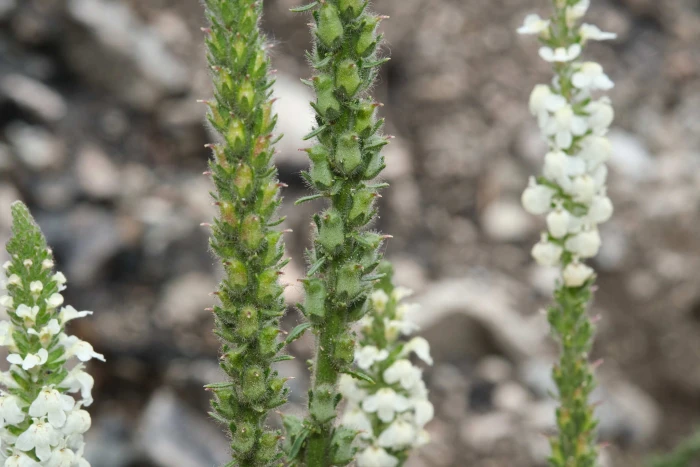Coulter’s Snapdragon
(Sairocarpus coulterianus)
Coulter’s Snapdragon (Sairocarpus coulterianus)
/
/

Shawn O'Donnell
CC BY 4.0
Image By:
Shawn O'Donnell
Recorded By:
Copyright:
CC BY 4.0
Copyright Notice:
Photo by: Shawn O'Donnell | License Type: CC BY 4.0 | License URL: http://creativecommons.org/licenses/by/4.0/ | Rights Holder: Shawn O'Donnell | Publisher: iNaturalist | Date Created: 2021-05-16T10:14:05-07:00 |





















Estimated Native Range
Climate Requirements for Muskegon, Michigan
| This Plant | Your Site | Plant Suitability for Your Location | ||
|---|---|---|---|---|
| • Precipitation | 6" - 37" | 33" | Your precipitation may be too high for this plant. | Too high |
| • High Temp. | 74°F - 109°F | 81°F | Your summer temperatures are normal for this plant. | Excellent |
| • Low Temp. | 21°F - 48°F | 17°F | Your winter temperatures may be too cold for this plant | Too cold |
This plant may not grow well at your location - your precipitation is too high.
Summary
Sairocarpus coulterianus, commonly known as Coulter’s Snapdragon, is an annual herb native to the chaparral, coastal sage scrub, and oak woodlands of southern California and Baja California, often flourishing in areas that have experienced recent fires. It typically grows with an erect stem that can reach up to 3 feet in height, sometimes leaning on nearby objects for support. The plant has sparse, linear leaves arranged in a basal rosette at the base of the stem. The inflorescence is woolly and displays showy white snapdragon-like flowers with hints of lavender or pink, particularly when they first open. Flowering occurs from March to May.
Coulter’s Snapdragon is valued for its drought tolerance and ability to colonize disturbed sites, making it a useful plant for restoration projects and native plant gardens. It requires minimal water once established, thriving in well-drained soils and full sun to part shade. While it is not commonly used in ornamental horticulture, its resilience and attractive flowers make it an interesting choice for wildflower meadows and informal garden settings. Gardeners should note that, as an annual, it completes its life cycle in one year and relies on self-seeding to persist in the garden.CC BY-SA 4.0
Coulter’s Snapdragon is valued for its drought tolerance and ability to colonize disturbed sites, making it a useful plant for restoration projects and native plant gardens. It requires minimal water once established, thriving in well-drained soils and full sun to part shade. While it is not commonly used in ornamental horticulture, its resilience and attractive flowers make it an interesting choice for wildflower meadows and informal garden settings. Gardeners should note that, as an annual, it completes its life cycle in one year and relies on self-seeding to persist in the garden.CC BY-SA 4.0
Plant Description
- Plant Type: Herb
- Height: 1-2 feet
- Width: 1-2 feet
- Growth Rate: Moderate
- Flower Color: Purple, White
- Flowering Season: Spring, Summer
- Leaf Retention:
Growth Requirements
- Sun: Full Sun, Part Shade
- Water: Low
- Drainage: Medium, Fast
Common Uses
Butterfly Garden, Drought Tolerant, Low Maintenance
Natural Habitat
Chaparral, coastal sage scrub, and oak woodlands
Other Names
Common Names: Bedstraw Snapdragon
Scientific Names: Sairocarpus coulterianus, Antirrhinum coulterianum, Antirrhinum coulterianum, Antirrhinum coulterianum f. orcuttianum, Antirrhinum coulterianum subsp. orcuttianum, Antirrhinum coulterianum var. nevinianum, Antirrhinum nevinianum, Antirrhinum orcuttianum
GBIF Accepted Name: Sairocarpus coulterianus